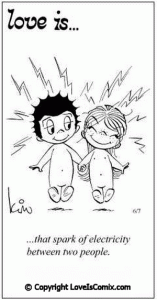 My kids and I had been waiting for like six months to see this movie. My girls were so excited that we decided to go on opening weekend, which is something we rarely do (I really hate crowds). My post is going to have some spoilers, so if you don’t want to know, stop reading.
My kids and I had been waiting for like six months to see this movie. My girls were so excited that we decided to go on opening weekend, which is something we rarely do (I really hate crowds). My post is going to have some spoilers, so if you don’t want to know, stop reading.
First, let me say that I really liked the movie. My problem is that the trailers for the movie, both the ones in theaters and on TV don’t really let you know what the movie’s about. In the commercials we’re presented with a young girl who doesn’t want to be forced into marriage, who wants to fight her own battles, who wants to change her destiny.
All great things and worth seeing the movie for.
What the trailers leave out is that in order to change her destiny, she goes to a witch and asks her to change her mother. Generic wish — we see where that’s going, right?
Well, the mother changes into a bear. Which just so happens to be the one creature that her father wants to kill since a bear took his leg. Plenty of drama and conflict here.
Merida has 2 days to fix everything, or her mother will remain a bear forever. This is pretty typical stuff, but Trouble, my 7 year old, cried through most of the last third of the movie. Although I had reassured her there would be a happy ending, she was really bothered by the hints of the bear taking over the mom. Eleanor, the mom, managed to push back those instincts to keep herself, but as time wore on, there was more bear than Eleanor.
Like I said, I really liked the movie. It’s an awesome representation of the struggle between daughters and their mothers. I just think that Pixar capitalized on funny moments — Merida disobeying her mother and shooting arrows after being told not to, watching the triplets cause trouble — that viewers didn’t realize the darker side to the story.
If I had known that, I don’t know that I would’ve taken Trouble to see it. Shorty and Eeyore were fine, but they’re older; they know they’re guaranteed a happy ending. Trouble couldn’t stand the thought of something so awful happening to Mom.
Which is a good thing for me, I guess.
Have you seen Brave? What did you think?
Stop by tomorrow for my 100th post and a special announcement.

















